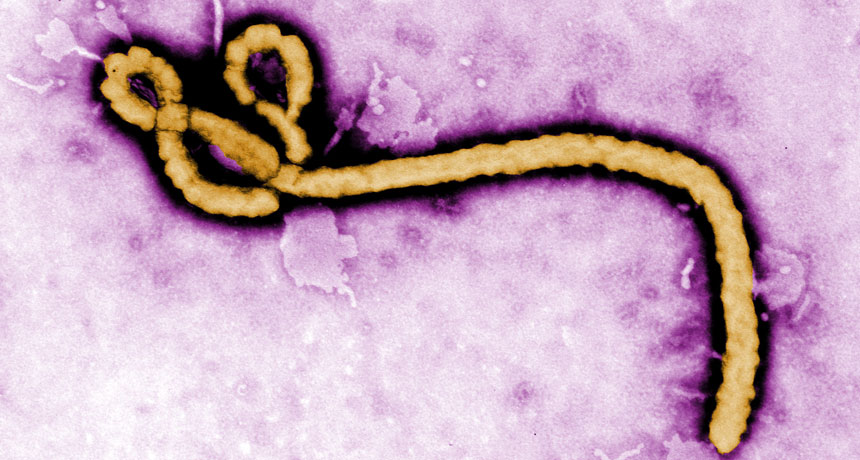Rapid Ebola test to detect early infection in the works

WASHINGTON — Diagnosing Ebola earlier is becoming almost as easy as taking a home pregnancy test.
Scientists are developing antibodies for a test that can sniff out the deadly virus more quickly and efficiently than current tests, researchers reported February 6 at the American Society for Microbiology Biothreats meeting.
Detecting Ebola’s genetic material in patients’ blood samples now takes a full day and requires access to a specialized laboratory. Simpler and speedier tests are available. They use antibodies — specialized proteins that latch onto and flag virus particles — and work somewhat like a pregnancy test. Within 10 or 15 minutes of dabbing a blood sample onto a piece of paper, a colored line confirms the presence of the virus. But currently these tests don’t give accurate results until the patient has been sick for a while, said immunologist Haley DeMers of the University of Nevada, Reno School of Medicine.
Antibodies more strongly attracted to the virus could track it down in a blood sample with just a few circulating particles, detecting disease before the virus takes over, DeMers and colleagues suspected. Their test uses two such antibodies. One, tagged with gold nanoparticles, drags the virus particles out of a sample. The tagged bits of virus wick up a piece of paper, where they’re ensnared by a second antibody that reveals their presence as a colored line. These antibody pairs need to work well together, grabbing different parts of the virus particle so they don’t interfere with each other. After generating candidate antibodies in mice, DeMers and her colleagues tested over 1,000 different pairings. They are now fine-tuning the five most effective combinations.